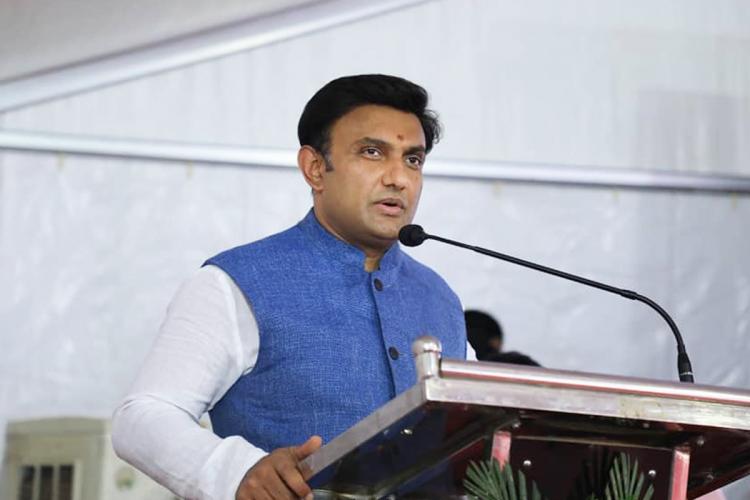By Neha Bhupathiraju
At a World Mental Health Day event at National Institute of Mental Health and Neurological Sciences (NIMHANS), Karnataka’s Health & Family Welfare Minister K. Sudhakar expressed his disappointment at the “paradigm shift in thinking” that women choose to stay single and childless.
“(I’m) sorry to say this, a lot of modern women in India want to stay single. Even if they get married, they don’t want to give birth – they want surrogacy. So there is a paradigm shift in our thinking which is not good.” He also said that western influence is the reason Indians also choose to not live with their parents.
Social media is flooded with anger at the Minister’s bizarre remarks. A day after his remarks, he issued a clarification that he “had no intention to single out women”. “Through my address during the World Mental Health Day program at NIMHANS, I intended to send across the message on how our Indian family value system can address the mental health issues that we are facing today”. He also alleges that those remarks were only a part of his 19 minutes speech and are being taken out of context.
His remarks are rather disappointing coming from the Health & Family Minister. The underlying principle behind (even his clarification!) is the notion that women are expected to be flag-bearers of the value system. It’s not uncommon for the word ‘modern’ to be used in a derogatory fashion – when modern often means, especially in a feminist context, somebody who stands up for themself or makes a choice about their own body. When will we stop vilifying those who dare to breakfree from the shackles of binary notions?
Women, not just in India but around the world, especially in US give a variety of reasons why they may choose to be single or not have kids. While some fear lack of support, some simply enjoy the independence. A lot of women have seen their mothers sacrifice their own lives to raise them up, a choice that they may not prefer to make. So the question is – “why should anyone except a woman or a couple in question, decide what’s right for her or them?” Well, the health minister certainly should not. This incident is also a reminder as to why representation matters and why we need women in decision making, otherwise there would be no recourse to laws, policies and opinion that are fundamentally androcentric.


